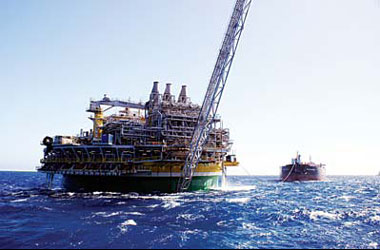Innovative moves for a shared future
Norway, on the northern edge of Europe, has only 4.7 million inhabitants - yet what the prosperous country lacks in numbers, it makes up for in clout in the global market.
Unemployment is at an all-time low and productivity is high, a testament to the nation's highly skilled population. Supported by robust growth in disposable income, its economy continued to surge throughout 2007.
Ranked the best place in the world to live for five years in a row by the United Nations, Norway boasts a well functioning social structure, a highly developed infrastructure and stable political conditions.
The country's value is well known in China, Norway's most important trading partner in Asia and a supplier of vast numbers of products to Norwegians.
"Norway has formulated its new China strategy, which outlines its overall challenges and objectives in relation to China. The strategy emphasizes plans to strengthen political dialog and economic and trade cooperation," says Norwegian Minister of Trade and Industry Dag Terje Andersen.
An energy nation
The Norwegian oil and gas industry has secured an increasing number of major international contracts in recent years as part of its avowed determination to develop beyond its domestic market.
In addition to major international oil companies, Norwegian oil and gas groups are internationally competitive supply and service companies covering the entire service chain from exploration, development, production, operation and decommissioning.
Intsok, tasked to promote the internationalization of the Norwegian oil and gas industry, has identified China as a priority market due to the high level of oil and gas activity.
Norway is now the world's third-largest exporter of crude oil, while China's increasing energy demand presents excellent opportunities for partnerships between the two countries.
Maritime community
Norway is Europe's most diversified maritime nation and is noted worldwide for its shipping expertise, equipment and ability to exploit new market niches, with its maritime sector now accounting for 15 percent of its total exports.
Norwegian companies own and operate some 1,400 vessels with a total of 48 million deadweight tons, 75 percent of which fly the Norwegian flag. The fleet represents about 10 percent of the world's total merchant fleet and makes the country one of the world's four-largest shipping nations.
China's rapid industrial transformation and economic growth have been key drivers in almost all shipping markets and Norway is well prepared to meet its industrial demands.
"The Norwegian shipbuilding industry is among the most innovative and creative in using new technology and developing new ship concepts," says Andersen. "As China's role in the international shipping industry continues to rise there is great potential for increased partnership between our two countries."
|
The first oil from the FPSO Sevan Piranema is offloaded after it began production in October last year off the coast of Brazil. |
New hi-tech 'flagship'
Driven by advancements in its traditional industries of oil and gas, shipping and fisheries, Norway's information and communications technology (ICT) sector has been compelled to accommodate those industries by creating technically advanced, cost-saving solutions.
Often described as "the newest national flagship for Norway," its ICT sector has a wide variety of hi-tech companies that create new telecommunications, hardware, software and industrial electronics products, as well as providing consultancy services.
Paul Chaffey, managing director of Abelia, the Norwegian Association of Technology and Knowledge-Based Companies, believes that Norway is a good location for advanced ICT companies because it has some of the most advanced customers in these industries.
"We have a small domestic market so there is a need for cooperation and competition within international markets," says Chaffey.
Many Norwegian companies have shown keen interest in finding partners and market opportunities in China for the transfer of technology and equipment, while China plans to further increase its cooperation in capital and technology exchange.
Synergies amid nations
Norway was one of the first countries to establish diplomatic relations with China and over the last 20 years has gradually lifted its trade barriers, making way for deeper integration. Today contacts range from individuals to institutions in almost every sector of society.
In line with its new China strategy Norway will open a new consulate in Guangzhou and expand its embassy operations in Beijing.
"Norway is on its way to becoming one of the world's leading, innovative and knowledge-based economies. China has made enormous progress in the recent years and our two economies fit very well together," says Andersen.
(China Daily 04/14/2008 page25)















